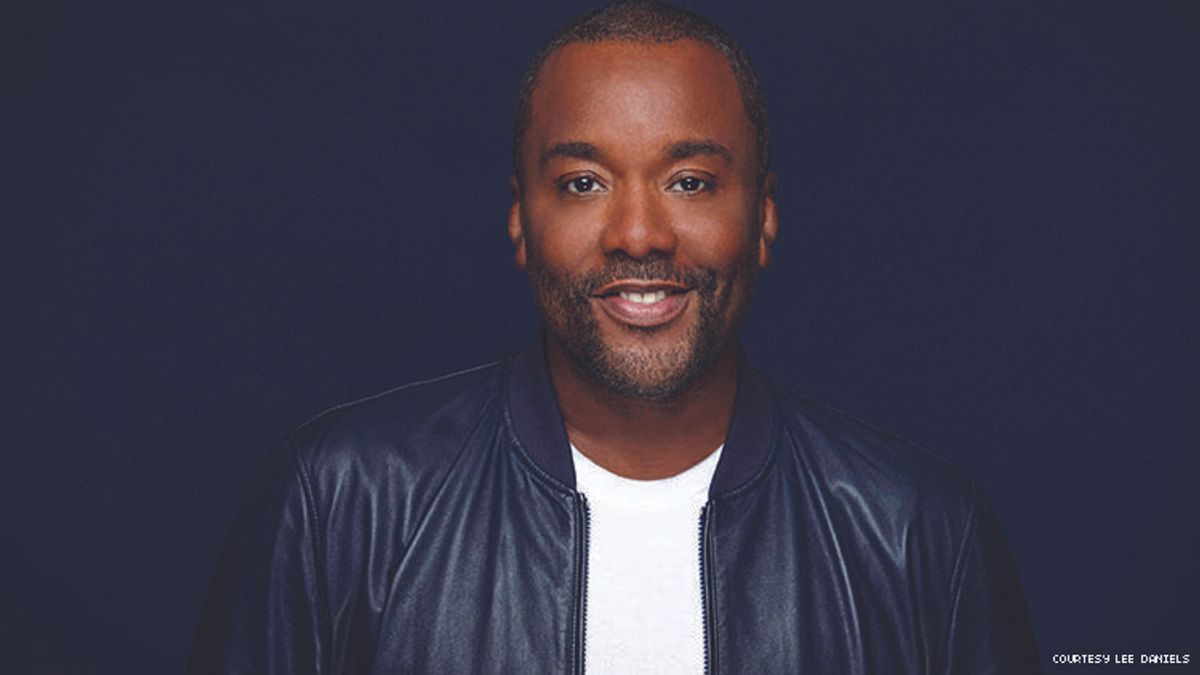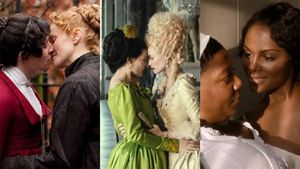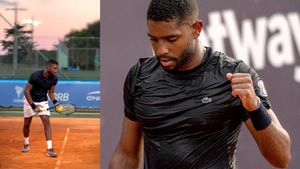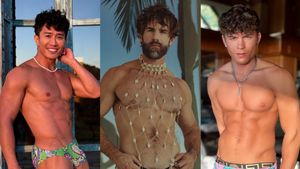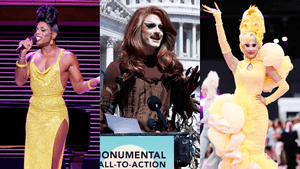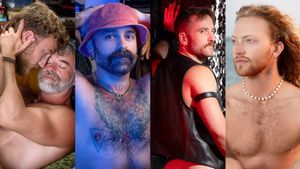In Hollywood, stars are seldom simply discovered, but are more often made by visionaries like Lee Daniels.
The Philadelphian knows star quality. He's recognized it since the day he stole his mother's car as a teenager and drove to New York City to sneak into a performance of Dreamgirls on Broadway. He recognized it when casting then-unknown actress Gabourey Sidibe in her breakout role in Precious. And when he was casting for the show that has altered the landscape for Black creators: Fox's Empire, which is currently filming its sixth and final season.
As a devoted activist, Daniels's work often goes beyond simple entertainment. Last year, amfAR honored him with an Award of Courage for his work around HIV. As a writer, his dialogue seamlessly weaves the experience of being a queer Black man into monologues so rich and tense they chill you to the bone.
The complex and brilliant storyteller recently returned to his theater roots, producing 24-year-old Jordan E. Cooper's play Ain't No Mo', a collaboration Daniels says has humbled him, reminding him of the power of mentorship.
"The gift isn't mine," Daniels says of the creative spark that has driven his own success. "When you're young, you think, 'Oh, it's all about me.' Then you realize it's not about you. The gift is God's gift, and you have to pass it on. That's the only way it lives. So you have to do everything you can to support the next [generation] if you see it."
The mogul, who says he's "a director at heart," moved to Hollywood in the 1980s, where he says, "There were no Black, gay directors," at the time. "There was John Waters, who was a mentor to me. There was Spike Lee, who was a mentor to me. And then there was Pedro Almodovar. So it was a little bit homo, a little ghetto, a little Euro. That became my groove."
Though Daniels identified as gay in private (he's since come out as sexually fluid), Hollywood had yet to warm up to queer creators. Just as he was finding his creative groove, his journey of self-discovery took a dark turn as the HIV epidemic intensified.
"To watch hundreds of your friends and sexual encounters pass away, many of whom die in your arms without their families -- there was a community of men that supported each other because our families would not come near us," he recalls. "It was rare that you would be accepted into your family."
Daniels remembers his own mother telling him in 1982 to "stay in Los Angeles for a little bit until this passes over," in reference to his queerness.
"I don't think that people realize the comradery that gay men had," he shares of the way the community turned inward for support. "[HIV] brought them together in a way. It broke down racial barriers. We were one. ...the psychological of it all, what it did to us as gay men. That generation is gone and [this generation] doesn't think about it. ...it saddens me they don't understand that a lot of blood was spilled for them to be where they are."
That was a period that forever changed him and led to a decades-long struggle with survivor's guilt. Daniels has said publicly he lost over 40 friends to AIDS complications during the crisis. "I'm lucky I survived," he says now. "I don't know how I never got [HIV]. I went looking for it actually, because I didn't think I deserved to be around with all these better souls that were going. I went from bathhouse to bathhouse, high, trying to find it."
That desire to do something with his life that justified his survival when so many bright and creative young men died, has pushed Daniels to challenge the status quo of filmmaking. His projects -- from Monster's Ball, the debut production of Lee Daniels Entertainment, to The Woodsman, Shadowboxer, The Butler, and most recently Superbitch, a project in development revolving around a gay superhero -- uproot the typical narratives, showcasing protagonists with complicated backstories and beautifully deep scars that ultimately become their strength.
But he jokes, "I'm still starting to get woke. I'm not woke yet, I'm almost woke." He points to his experience writing Cotton Brown, a transgender woman in his series, Star, who undergoes gender affirmation surgery. Daniels admitshe needed to be educated about how gender transitions can be dramatically different for individual trans people -- sometimes including surgical interventions, but not always. "It was just like, 'Oh my god, How can I be gay this long and not understand the different facets?'" he says now.
This past year has been particularly difficult on Daniels, especially when Empire star Jussie Smollett allegedly staged the homophobic and racist hate crime he claimed to have be the victim of. Fallout over the alleged attack prompted a media frenzy around Empire and threw the future of the show into question. Smollett, who played a gay character on the show, was fired even though the Chicago prosecutor ended up dropping charges against the actor.
It was around the same time that Daniels met Cooper. "He came along just as the Jussie stuff was happening," Daniels says. "I think for every dark cloud there's a bright star--and not that I'm calling Jussie, necessarily, a dark cloud, because the jury is yet out on all that. But it was a dark place for me personally. You know what I mean? There's a yin and a yang to everything, and I felt that this was sort of, Wow, [Cooper] came into my life for a reason."
As for the future, the trailblazing star sees himself coming full circle. "Being back in theater inspires me because I come from theater," he says. "Seeing Jordan go to work makes me want to go back."
"Once you make your money in television, you forget why it is that you're working," Daniels muses. "You really do. You become satisfied and it's just television -- not that I'm knocking it, [but] it's more like feeding the beast after the art is made. After the monster is made, you gotta feed the monster with story. And that can be redundant. You're not really creating anymore."
While he intends to continue to direct theater productions, Daniels also has a new goal: "to find people like Jordan too, because finding him inspired me to find other gay, young, voices that are out here that are just as talented as me -- if not more."
